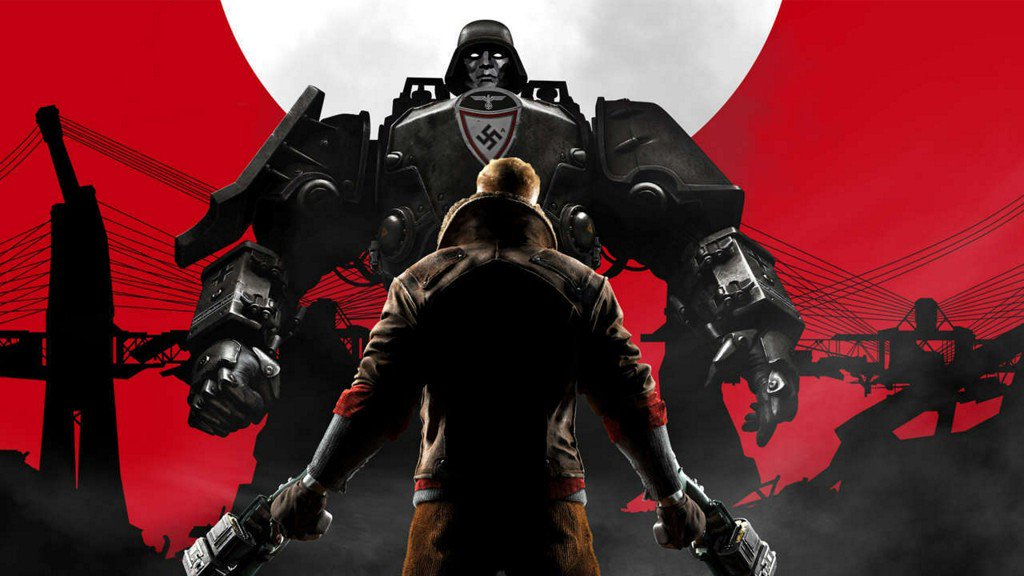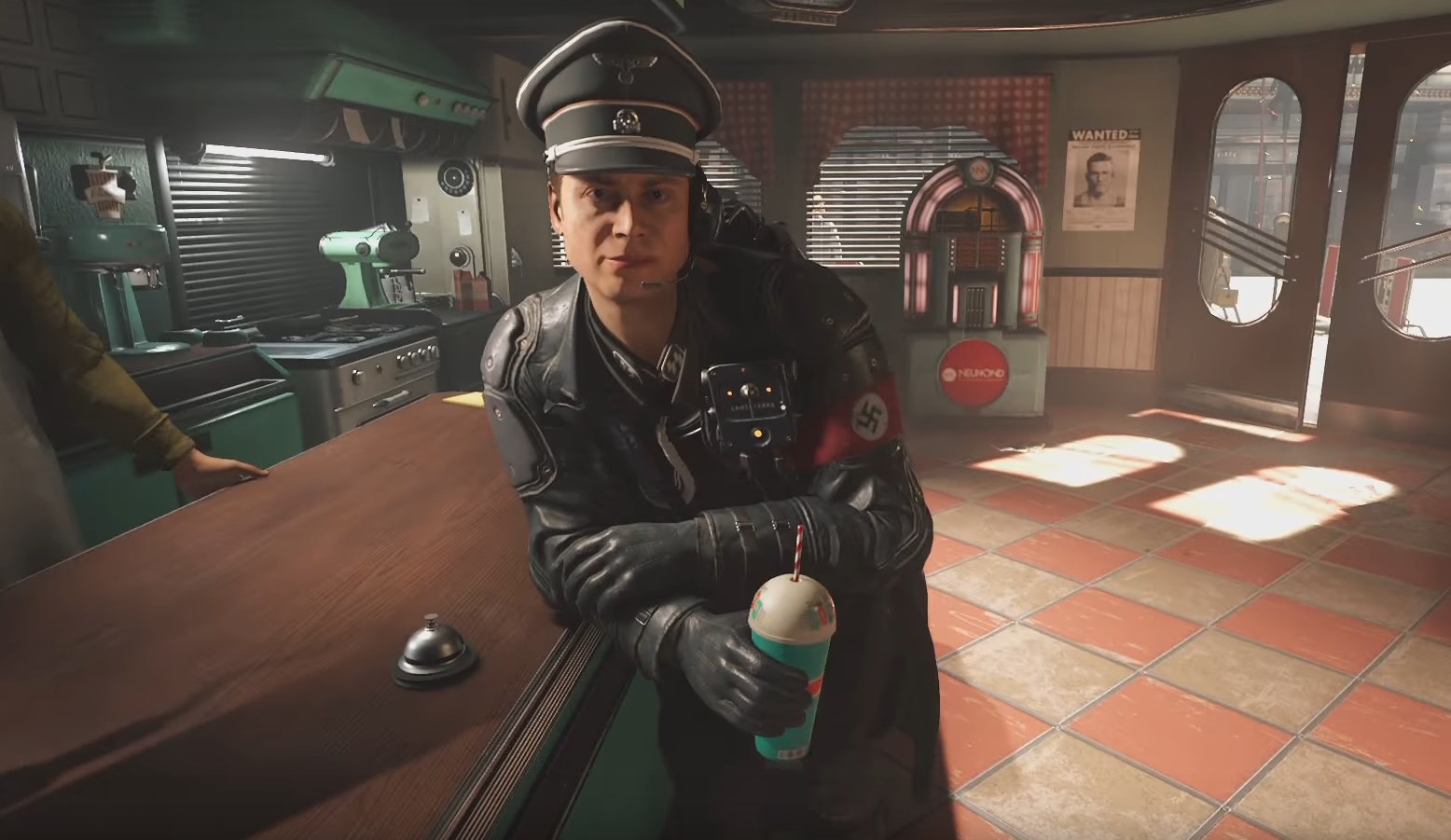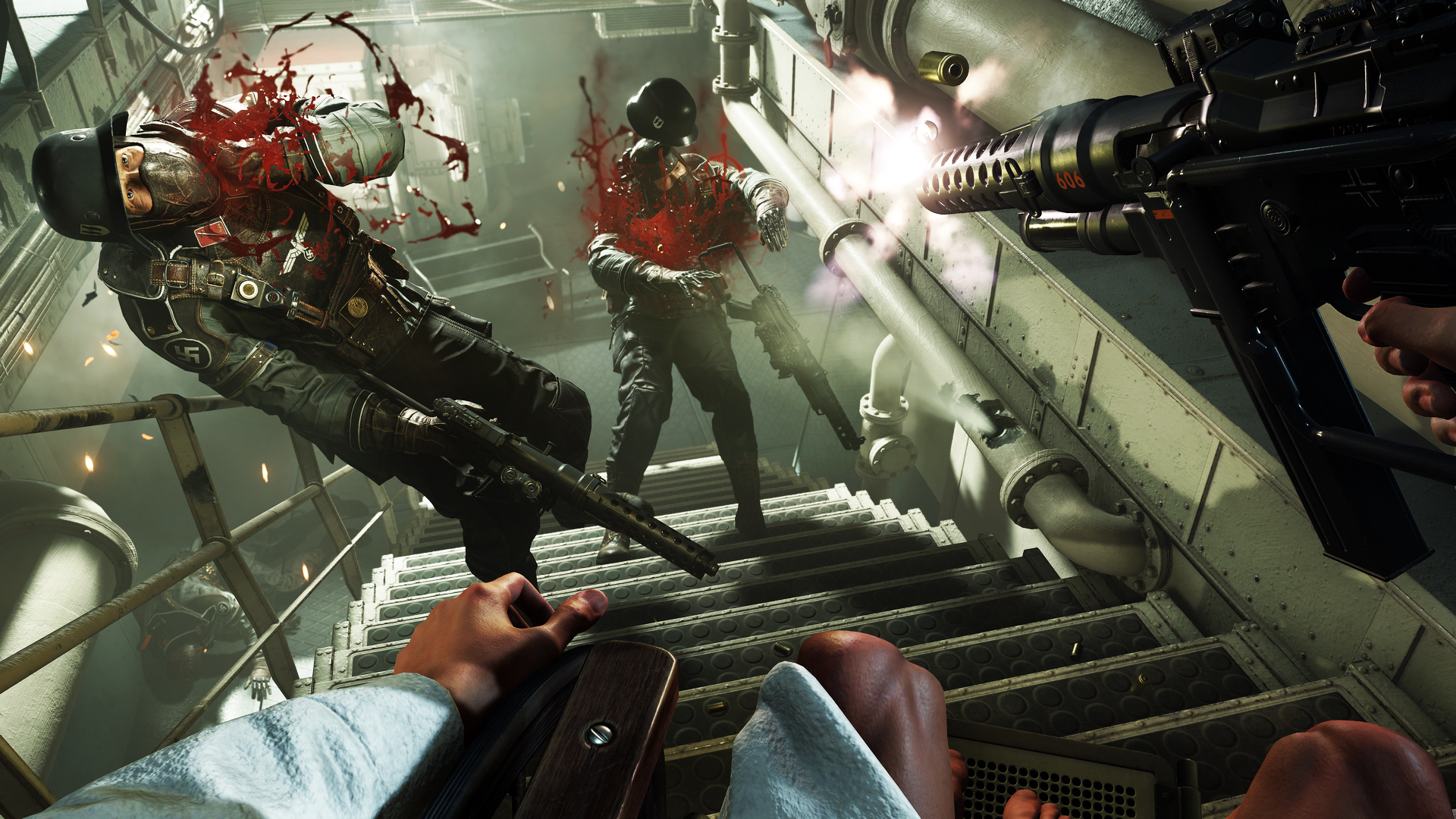How Wolfenstein 3D is influencing The New Colossus
It's about doing what you want, marketing be damned, says creative director Jens Matthies.
It’s a quaint slice of 1960s Americana: a little town, a busy diner, a chatty friend. With the sounds of a July 4th parade marching down main street, a blonde woman gossips with a waitress. As she turns to go, she stops and turns back. “Oh and dear, please let your auntie know that I’ve got several strong slaves for sale.” Her laugh tinkles across the sidewalk.
Wolfenstein 2: The New Colossus has gotten a lot of attention for its alternate history portrayal of a Nazi-conquered USA, and it’s easy to see why. Hooded KKK members wandering the streets and Nazi flags flapping in the American breeze make for dreadful images, especially because it's not pure fiction. But the little touches of smart worldbuilding are just as arresting, and they’re evidence that the MachineGames team feels free to chase bold ideas—by their account, that attitude is borrowed from the original Wolfenstein from 1992.
“We decided to focus specifically on the original Wolfenstein 3D [for inspiration],” creative director Jens Matthies tells me at QuakeCon earlier this week. “What's so amazing about that game is that it's so totally a pure expression of creative freedom. You can see that the people who did this didn't have a marketing department, didn't have to worry about a publisher.” The early developers at id were unfettered by what Matthies calls the “videogame bureaucracy,” so they were free to have fun and be ridiculous. That sense of freedom created a boss battle against Mecha-Hitler and gunfights with a gatling gun in each hand.
In New Colossus, one mission puts a badly-injured BJ in battle with Nazis from the seat of a rickety wheelchair. While BJ wheels himself into gunfights, Set, the mad scientist from New Order, is setting up microwave traps that fry passing Nazis. The slapstick dopiness of Nazis falling for the same trick over and over is exactly the kind of silliness that characterized Wolfenstein 3D.
“On the surface level you can look at [Mecha-Hitler and silliness] and say, ‘oh that's very juvenile,’ but if you take a more generous view of it, it's people who just don't give a fuck,” Matthies says. Feeling free and unafraid of consequences made Wolfenstein 3D really popular, and that’s the ethos that MachineGames is deliberately emulating. If they like something, they’re putting it in the game. They want to microwave some Nazis, so they do. They don’t give a fuck.
Cavalier freedom comes across in some jokes: soldiers complain about “tiny American glasses” in the bar and visibly enjoy harassing a couple of hillbillies wearing Klan robes. But the freedom to make jokes also carries into MachineGames' unrestrained comments on fascism: A desperate young woman flirts with a Nazi officer with racist flair, dismissing jazz as “jungle music.” It’s the kind of thing that would make a PR department nervous and it’s exactly how Wolfenstein 3D would have handled it.
I’ve only seen bits and pieces of Colossus, but so far I think the Wolfenstein 3D approach is working. After dropping a Nazi with a fire axe to the head, I hefted two automatic shotguns and went sprinting down a train corridor, mincing Nazis with the speed of an industrial meat processor. The rush of noise and blood is so much fun that I don’t care how silly the whole thing is.
Keep up to date with the most important stories and the best deals, as picked by the PC Gamer team.
Following 2016’s Doom, Colossus is the second game to run on id’s new engine, idTech6. The New Order is still a joy to revisit a few years later, but by comparison Colossus looks and feels incredibly smooth. The guns feel heavy and violent, and no matter how many pieces of shrapnel and Nazi helmets fly into the air, the game just never seems to chug or slow down. It has the same soft, glossy look that made Doom such an attractive game, but here that colorful perspective has been applied to Nazis and steel instead of sci-fi demons.
But while the wackiness and the worldbuilding are fun, they do deal with deadly serious ideas—one hopes without being dishonest about them, or treating them too lightly. That is also on Matthies' mind. “One of the decisions we made early on was that we wouldn't cartoonify the ideology," he says. "In a way of course it's all exaggerated, but we didn't want to pull any punches on what that ideology is all about.”
For a deeper look at how Colossus is handling the realities of 2017, check out our full interview on politics with Mathies, as well as Shaun's hands-on account from last month.




